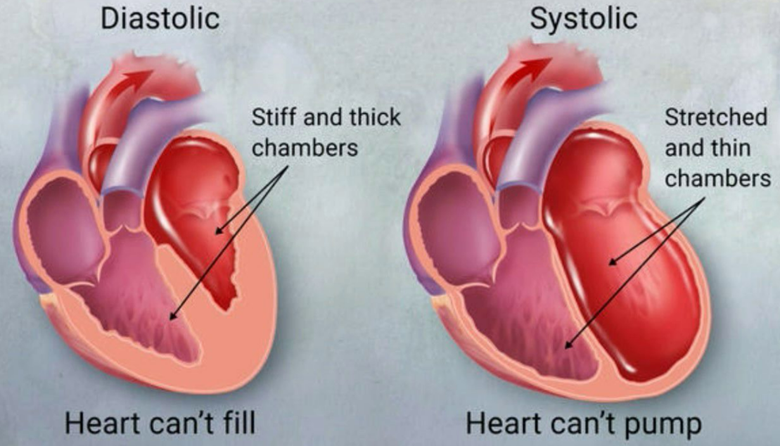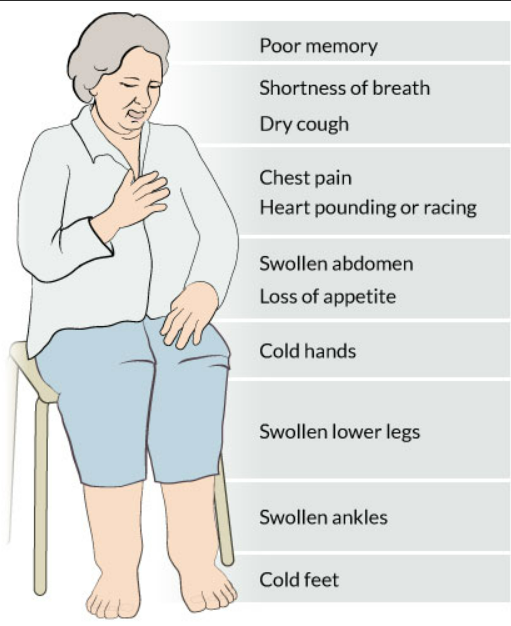What is heart failure?
Heart failure is a condition in which the heart cannot pump blood that meets body needs. It occurs when there is impairment in the ability of the heart to fill with blood or eject blood. As the heart is a machine that pumps blood to the whole body, it needs to fill adequately and pump effectively to do so. Disturbance in either or both causes heart failure as shown below.
There are a wide variety of conditions that can cause heart failure. Heart attack or blockages in the heart is the most common cause
among them. Even alcohol, HIV, and some other infections too cause heart failure. Prolonged high blood pressure and diabetes are also key causes for heart failure
Heart failure caused by poor pumping capacity of the heart is diagnosed by a 2d echo test. 2d echo measures the pumping capacity of the heart in the form of ejection fraction. Normal ejection fraction is above 55-60%. EF less than 50% is a hallmark of heart failure in
the majority. Heart failure can be a left-sided failure or right-sided heart failure or both sides failure. Left-side heart failure and right-sided heart failure may each occur separately or concurrently. Left-side heart failure is a common cause of right-sided heart failure, and most patients with right-sided heart failure have some element of left-side heart failure.
Symptoms of heart failure
The most common symptom reported by patients is breathlessness. They feel short of breath at rest or at minimal
exertion.
They also develop swelling of the legs (due to accumulation of excess water in the legs), and swelling of the abdomen (due to accumulation of excess water in the abdomen). later one leads to abdominal
discomfort or pain.
Patients with heart failure often feel fatigued and weak. They may have poor sleep; they may wake up in the
middle of the night. They report a lack of appetite also.
Who are at higher risk of heart failure?
1. Older
age people
2. High
blood pressure patient
3. History
of coronary artery disease
4. Prior
or present heart attack
5. Obesity
6. Genetic
7. HIV
8. Alcohol
9. Few
viral infections
10. Diabetes
ECG Test for heart failure
Most patients with heart failure have abnormalities on the ECG test.
Blood test for heart failure
A blood test called Natriuretic peptide (NT-proBNP]) levels also helps in the diagnosis of heart failure. NT-proBNP levels below 300 pg/mL excludes heart failure
2d echo test for heart failure
2d echo test is helpful to diagnose heart failure and to identify the cause of heart failure. Ejection fraction is often
decreased in such kinds of patients.




You have given us very important data. It is excellent and informative for everyone. Keep posting always. I am heartily thankful to you. physiotherapy clinic near me.